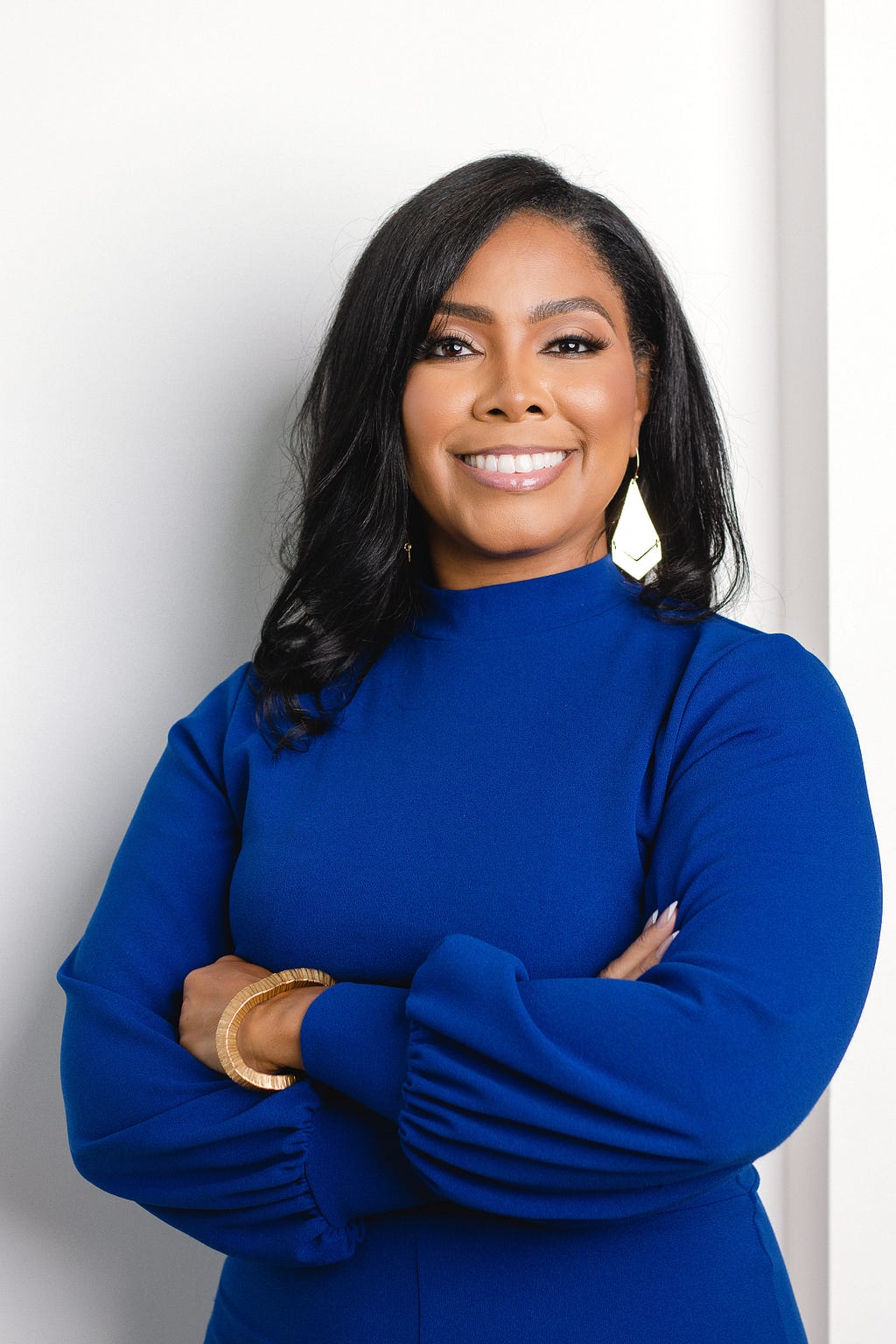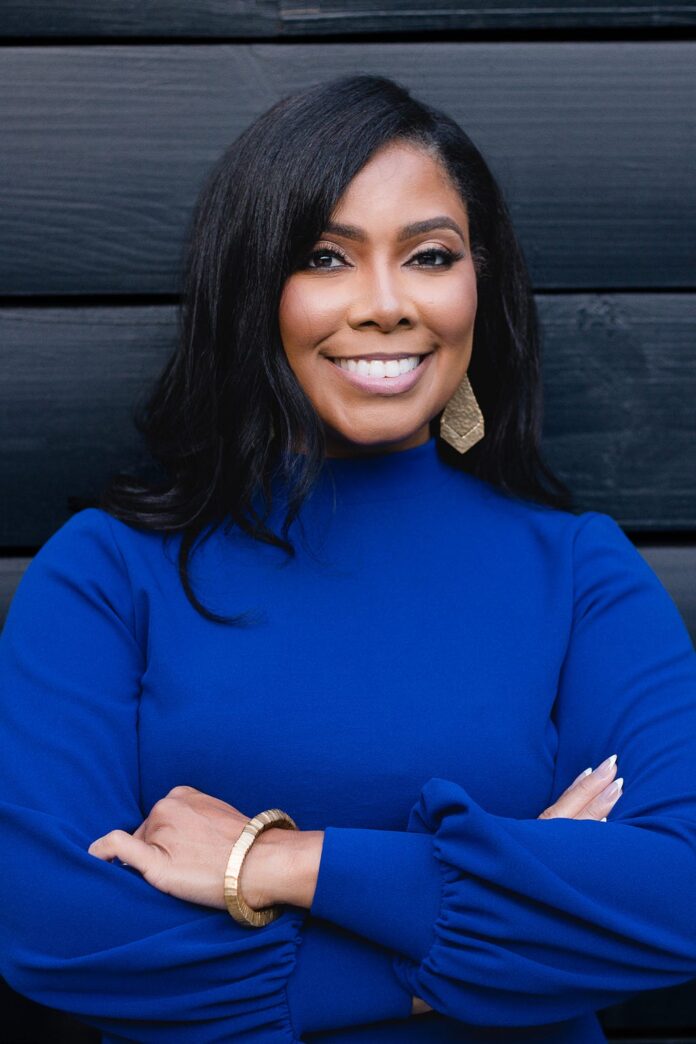C-Suite Perspectives On AI: Lakeisha Robichaux Of Minds On Where to Use AI and Where to Rely Only on Humans
An Interview With Kieran Powell
Adaptability to fast changing environments may present obstacles for AI as they excel in predictable environments where patterns or routines remain consistent. I do believe AI will grow more flexible over time, however, for now, humans may adapt faster to change and make strategic decisions without previous context.
As artificial intelligence (AI) continues to advance and integrate into various aspects of business, decision-makers at the highest levels face the complex task of determining where AI can be most effectively utilized and where the human touch remains irreplaceable. This series seeks to explore the nuanced decisions made by C-Suite executives regarding the implementation of AI in their operations. As part of this series, we had the pleasure of interviewing Lakeisha Robichaux.
As a high-profile business strategist, HR powerhouse, CEO and author, Lakeisha Robichaux has been revolutionizing the way organizations succeed since 2002. The CEO and founder of Chief of Minds (COM), a human resources firm she launched in 2014, Robichaux’s strategic skill set as a problem-solver, success seeker, and organizational leader has allowed her to help build high-performing teams by optimizing operations and developing executive leaders. Coupling her 21+ years of experience in facilitating business growth and her passion for servant leadership, Chief of Minds offers professional consultations and HR services to corporations, public and private sectors, non-profit organizations, and government entities, acting as a one-stop shop for all human resources and business consultancy needs.
With a mission of helping the next generation of small-business owners advance within their industries and create lasting and sustainable companies, Lakeisha launched a business development membership platform called BizChiefs in 2020, as an extension of the Chief of Minds brand.
Lakeisha is a graduate of the Goldman Sachs 10,000 Small Businesses program, an inaugural member of the American Academy of Entrepreneurs, a member of the Leadership Council for the National Small Business Association, and has earned the Small Business of the Year Award from the 2022 Leadership Council, the 2023 Outstanding Small and Emerging Business Development Award from the MBECA, and the “She’s A Ten” Women’s Business Award. Most recently, Robichaux was asked to serve as the Board President of the Baton Rouge Metropolitan Black Chamber of Commerce.
Thank you so much for your time! I know that you are a very busy person. Our readers would love to “get to know you” a bit better. Can you tell us a bit about your ‘backstory’ and how you got started?
I was born and raised in Baton Rouge, Louisiana where I fell in love with business and entrepreneurship at an early age. I started my entrepreneurial journey by crafting purses and doing yard work for my family and neighbors around our Brooks town neighborhood. After graduating from college, I continued my HR journey and eventually launched my human resources firm, Chief of Minds back in 2014. This was after several leadership roles at Fortune 100 and 500 companies focusing on HR, culture, leadership, and performance. I opened two additional businesses (staffing and insurance) to complement the HR firm and meet the needs of our clients. Today, I am married with two handsome boys and my days are full of school activities and sports for the boys, business meetings and calls, traveling, family time at movies/gatherings/restaurants, and bing watching tv shows since I don’t watch daily television.
It has been said that our mistakes can be our greatest teachers. Can you share a story about the funniest mistake you made when you were first starting? Can you tell us what lesson you learned from that?
It wasn’t funny when I first started but I laugh at it now. When I started a previous company, I had the “if you build it they will come” mentality. I leased my office, designed flyers, joined trade associations and chambers, purchased all necessary equipment and waited for clients to flood my phone line with calls. I learned quickly that business doesn’t operate that way. I had to network, identify and understand our clients, build relationships, and nurture relationships, all while marketing, and running the business.
I learned that marketing and building relationships is important for business operations and growth. Many people do business with people they know, like, and trust. Although this was before digital marketing became popular, it’s still true today.
Are you working on any exciting new projects now? How do you think that will help people?
Yes, we are preparing for our annual Biz Chiefs conference which helps business owners and entrepreneurs with growing and scaling their business. Every year the focus, deliverables, and theme changes, just as business trends and initiatives change. The conference will help business owners and entrepreneurs improve business operations to grow to the next stage of business, establish or enhance their wellness program, and discuss the importance of valuing diversity in their organization.
Thank you for that. Let’s now shift to the central focus of our discussion. In your experience, what have been the most challenging aspects of integrating AI into your business operations, and how have you balanced these with the need to preserve human-centric roles?
We are easing AI into our business operations. For now, we use AI to automate tasks, processes, onboarding internal and external employees and clients, and project management. We are balancing the human role by oversight and accountability with the understanding that at least one human has to “manage” the AI infrastructure. In addition, we are auditing AI systems and processes for bias, fairness and accuracy.
Can you share a specific instance where AI initially seemed like the optimal solution but ultimately proved less effective than human intervention? What did this experience teach you about the limitations of AI in your field?
We researched using AI for talent acquisition but decided not to proceed due to compliance and ethical concerns with results. Algorithms used in hiring processes might inadvertently introduce biases. Reviewing resumes and facilitating interviews is people centric when you are hiring for “the whole person” vs just skills. Culture matters and hiring the right person for the right position is vital to our organization (really any organization). This is not a permanent decision; however, we are taking time to research established AI systems vs building a custom AI tool to support our values and culture.
How do you navigate the ethical implications of implementing AI in your company, especially concerning potential job displacement and ensuring ethical AI usage?
Communication is key. Investing in training and development and being transparent about the vision and future of operations.
Could you describe a successful instance in your company where AI and human skills were synergistically combined to achieve a result that neither could have accomplished alone?
Currently, we don’t have any instances in our company where AI and human skills were synergistically combined to achieve a result as such. All instances can be completed by a human. I’m sure there will be a moment in time where this will change.

Based on your experience and success, what are the “5 Things To Keep in Mind When Deciding Where to Use AI and Where to Rely Only on Humans, and Why?” How have these 5 things impacted your work or your career?
1 . Similar to my statement above, ethical and value-based decision making should be human based decisions as AI may not have the training to properly make current and informed decisions. During our research and quest for AI powered talent acquisition support, we found it tough to check for cultural nuances and moral principles. It took more time to review data which was opposite of our goal to streamline tasks and expedite results.
2 . Relationship building is an area that takes time, nurturing, and finesse. This is an area where AI and human skills can reach the common goal. Many sales processes are automated and start with a human or AI action. For us, our sales process can start with human contact or some form of automated marketing and progress with actions from both a human and AI from there.
3 . Use AI for automating repetitive and time-consuming tasks and processes. This not only improves productivity but also reduces the likelihood of errors, resulting in a more efficient and streamlined workplace. Automating routine tasks can lead to significant cost savings such as a reduction in labor costs, minimization in human errors, and optimizing resource allocation. This, in turn, can improve the overall financial health of an organization.
4 . Adaptability to fast changing environments may present obstacles for AI as they excel in predictable environments where patterns or routines remain consistent. I do believe AI will grow more flexible over time, however, for now, humans may adapt faster to change and make strategic decisions without previous context.
5 . Analyzing data in your business can be handled by AI, however, handling of vast amounts of data raises security concerns and must be addressed and monitored to ensure it is safely used in the workplace. This can include sensitive employee information, financial data, and proprietary company data. Protecting sensitive information from breaches and ensuring compliance with data protection regulations is a significant challenge and should be audited and monitored by a human.
Looking towards the future, in which areas of your business do you foresee AI making the most significant impact, and conversely, in which areas do you believe a human touch will remain indispensable?
I see AI making the most significant impact in the repetitive and time-consuming tasks such as marketing, automated emails, general customer service, project management, and onboarding. A human touch will remain indispensable with certain steps of the sales process, finance, leadership, strategic planning, and culture.
You are a person of great influence. If you could start a movement that would bring the most amount of good to the most amount of people, what would that be? You never know what your idea can trigger. 🙂
I would start a movement that would be dedicated to improving healthcare access to all. This includes efforts to enhance healthcare infrastructure, provide quality healthcare regardless of insurance policies, and remove age restrictions for preventative checkups and maintenance. A healthier population contributes to increased productivity and well-being.
How can our readers further follow your work online?
You can follow me on LinkedIn at LinkedIn
You can follow Chief of Minds on LinkedIn at LinkedIn
This was very inspiring. Thank you so much for joining us!
About The Interviewer: Kieran Powell is the EVP of Channel V Media a New York City Public Relations agency with a global network of agency partners in over 30 countries. Kieran has advised more than 150 companies in the Technology, B2B, Retail and Financial sectors. Prior to taking over business operations at Channel V Media, Kieran held roles at Merrill Lynch, PwC and Ernst & Young. Get in touch with Kieran to discuss how marketing and public relations can be leveraged to achieve concrete business goals.
C-Suite Perspectives On AI: Lakeisha Robichaux Of Minds On Where to Use AI and Where to Rely Only… was originally published in Authority Magazine on Medium, where people are continuing the conversation by highlighting and responding to this story.


